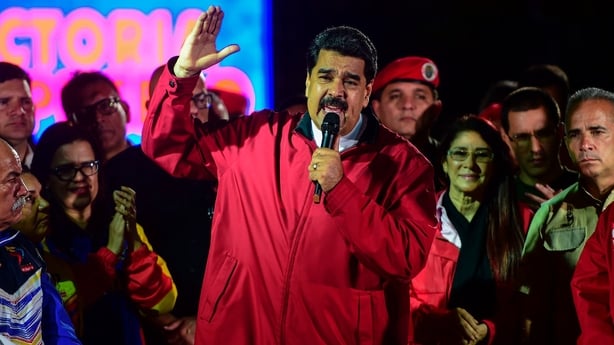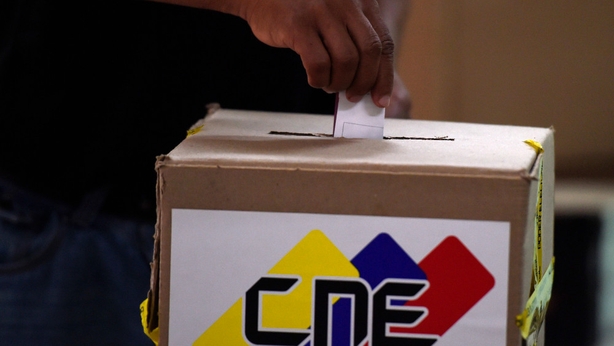The European Union has voiced concern over the "fate of democracy" in Venezuela, adding there are "grave doubts" that it can recognise a controversial vote to elect a new assembly.
"The events of the past 24 hours have reinforced the European Union's preoccupation for the fate of democracy in Venezuela," European Commission spokeswoman Mina Andreeva said.
"The commission indeed has grave doubts about whether the election result can be recognised."
Venezuelan President Nicolas Maduro claimed victory after the election to pick a new constitution-writing body.
"We have a Constituent Assembly," the embattled leftist leader said in a speech to hundreds of supporters in central Caracas, after the electoral authority put the voter turnout at 41.5%.
"It is the biggest vote the revolution has ever scored in its 18-year history," he said, referring to the year his mentor Hugo Chavez came to power.
At least ten people were killed during protests yesterday against the election yesterday.
The opposition vowed to hold protests again today and to keep pressuring Mr Maduro's cash-strapped government until he is forced from office.
Anti-Maduro activists erected barricades on roads, and scuffles broke out with security forces who moved in quickly to disperse demonstrators who denounced yesterday's election as a naked power grab by the president.
Mr Maduro, widely disliked for overseeing an unraveling of Venezuela's economy, has promised the assembly will bring peace by way of a new constitution after four months of opposition protests in which more than 120 people have been killed.

Opposition parties sat out the election, saying it was rigged to increase Mr Maduro's powers, a view shared by countries including Spain, Canada, Colombia and the United States.
The US vowed "strong and swift actions against the architects of authoritarianism" in response to what it called a flawed election.
"The United States stands by the people of Venezuela, and their constitutional representatives, in their quest to restore their country to a full and prosperous democracy," the US State Department said in a statement.
The Trump administration is considering imposing US sanctions on Venezuela's vital oil sector, officials said.
Potential US sanctions on sales of light crude to Venezuela's oil company PDVSA would hamper its already weak refining network.
Caracas was largely shut down yesterday, streets were deserted and polling stations were mostly empty, dealing a blow to the legitimacy of the vote.
A bomb exploded in the capital and wounded seven police officers in what could be the spread of more aggressive tactics.
Critics say the assembly will allow Mr Maduro to dissolve the opposition-run Congress, delay future elections and rewrite electoral rules to prevent the socialists from being voted out of power.

Fueling anger against Mr Maduro is an unprecedented economic meltdown in the country of about 30 million people, which was once a magnet for European migrants thanks to an oil boom that was the envy of Latin America.
However, nearly two decades of heavy currency and price controls have strangled business. Venezuelans have seen their purchasing power shredded by the world's highest inflation rate.
Millions of Venezuelans now struggle to eat three times a day due to shortages of products as basic as rice and flour.

